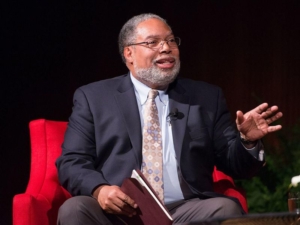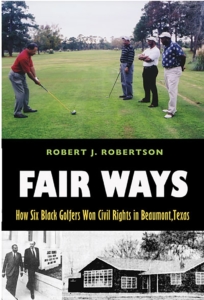One of the Earliest Memorial Day Ceremonies Was Held by Freed Slaves
At the close of the Civil War, freed slaves in Charleston honored fallen Union soldiers
Photo: The clubhouse at the Charleston racetrack where the 1865 Memorial Day events took place. (Library of Congress)
(History) Memorial Day was born out of necessity. After the American Civil War, a battered United States was faced with the task of burying and honoring the 600,000 to 800,000 Union and Confederate soldiers who had died in the single bloodiest military conflict in American history. The first national commemoration of Memorial Day was held in Arlington National Cemetery on May 30, 1868, where both Union and Confederate soldiers are buried.
Several towns and cities across America claim to have observed their own earlier versions of Memorial Day or “Decoration Day” as early as 1866. (The earlier name is derived from the fact that decorating graves was and remains a central activity of Memorial Day.) But it wasn’t until a remarkable discovery in a dusty Harvard University archive the late 1990s that historians learned about a Memorial Day commemoration organized by a group of freed black slaves less than a month after the Confederacy surrendered in 1865. (more)
First African-American to hold position
Lonnie G. Bunch III to Become the Smithsonian’s 14th Secretary
The founding director of the National Museum of African American History and Culture, Bunch represents the first insider to lead the Institution in decades
 (Smithsonian) The Smithsonian today named Lonnie G. Bunch III as the 14th Secretary of the Smithsonian Institution. Bunch is the founding director of the National Museum of African American History and Culture (NMAAHC), a position he has held since 2005. Prior to that, Bunch served as the president of the Chicago Historical Society. He succeeds David J. Skorton as secretary and will be the first African-American to hold the position.
(Smithsonian) The Smithsonian today named Lonnie G. Bunch III as the 14th Secretary of the Smithsonian Institution. Bunch is the founding director of the National Museum of African American History and Culture (NMAAHC), a position he has held since 2005. Prior to that, Bunch served as the president of the Chicago Historical Society. He succeeds David J. Skorton as secretary and will be the first African-American to hold the position.
In a Smithsonian press release announcing the new appointment, Bunch said, “I am excited to work with the Board of Regents and my colleagues throughout the Institution to build upon its legacy and to ensure that the Smithsonian will be even more relevant and more meaningful and reach more people in the future.”
Bunch was born in Newark, New Jersey, in 1952 and attended Washington, D.C.’s Howard University, before transferring to American University where he earned his Bachelor’s and Master’s degrees in American History and African History. His ascent at the Smithsonian includes posts as historian, curator and director. The opening of NMAAHC in 2016 represented a monumental achievement for the Smithsonian, one accomplished thanks to the Herculean efforts of Bunch. (more)
Related: How Lonnie Bunch came to lead the Museum of African American History
2019 Aya Symposium at PVAMU
“Education: THE Foundation for Civil Rights in Texas Freedom Colonies”
The Aya Symposium, in association with the Texas Purple Hull Pea Festival, will be held on Wednesday, June 19 (“Juneteenth”), 2019 at Prairie View A&M University in the School of Architecture. Texas educators, historians, and history enthusiasts are encouraged to attend. K-12 Texas educators will receive 7 CPE credits.
On June 19, 1865, more than two years after the Emancipation Proclamation, Texas’ enslaved residents were informed of their freedom. Almost immediately, these newly emancipated Texans began to assert themselves as resourceful, innovative citizens, forming more than 540 “Freedom Colonies” throughout the state during the mid-19th through the early 20th centuries as foundations in the fight for Civil Rights for Texans of African descent.
The goal of this symposium, entitled “Education – THE Foundation for Civil Rights in Texas Freedom Colonies” will be to explore the history of the educational systems and structures in Freedom Colonies, their influence on fostering and sustaining Black civil rights in the late 19th and early 20th centuries, and their impact on African-American Texans today.
For registration and more information, visit the Aya web site, www.ayasymposium.org/.
La Crosse chef will tell story of African-American culture with Juneteenth celebration at James Beard House
 (La Crosse Tribune) La Crosse’s Adrian Lipscombe, a native Texan, and her fellow chefs will tell a story in a unique medium next month when she hosts the James Beard House’s 2019 Juneteenth celebration in New York.
(La Crosse Tribune) La Crosse’s Adrian Lipscombe, a native Texan, and her fellow chefs will tell a story in a unique medium next month when she hosts the James Beard House’s 2019 Juneteenth celebration in New York.
“Instead of our book, it’s our plates that kind of tell a story,” Lipscombe said.
Lipscombe, who owns and operates Uptowne Café & Bakery on La Crosse’s North Side, will host the famed foodie destination’s celebration of June 19, 1865, the day the U.S. military announced the end of slavery throughout the country in Galveston, Texas.
“We think it’s an important occasion,” said Izabela Wojcik, director of programming at the James Beard House. “It’s the oldest nationally celebrated commemoration of the ending of slavery in the United States, and it originated in Texas.” (more)
TIPHC Bookshelf
 Published scholarship on black history in Texas is growing and we’d like to share with you some suggested readings, both current and past, from some of the preeminent history scholars in Texas and beyond. We invite you to take a look at our bookshelf page – including a featured selection – and check back as the list grows. A different selection will be featured each week. We welcome suggestions and reviews. This week, we offer, “Fair Ways, How Six Black Golfers Won Civil Rights in Beaumont, Texas,” by Robert J. Robertson.
Published scholarship on black history in Texas is growing and we’d like to share with you some suggested readings, both current and past, from some of the preeminent history scholars in Texas and beyond. We invite you to take a look at our bookshelf page – including a featured selection – and check back as the list grows. A different selection will be featured each week. We welcome suggestions and reviews. This week, we offer, “Fair Ways, How Six Black Golfers Won Civil Rights in Beaumont, Texas,” by Robert J. Robertson.
In the summer of 1955, early in the modern civil rights era, six African American golfers in Beaumont, Texas, began attacking the Jim Crow caste system when they filed a federal lawsuit for the right to play the municipal golf course. The golfers and their African American lawyers went to federal court and asked a conservative white Republican judge to render a decision that would not only integrate the local golf course but also set precedent for desegregation of other public facilities, as well.
In Fair Ways, Beaumont native Robert J. Robertson chronicles three parallel stories that converged in this important case. He tells the story of the plaintiffs—avid golfers who had learned the game while working as caddies and waiters—and their young lawyers, recent graduates from Howard University law school, and the Republican judge just appointed to the bench by President Eisenhower. Would the judge apply the new principles of Brown v. Board of Education to the questions before him? Would he use federal judicial power to override state laws and outlaw local customs?
Fair Ways gives an uncommonly vivid picture of racial segregation and the forces that brought about its end. Using public case papers, public records, newspapers, and oral histories, Robertson has recreated the scene in Beaumont on the eve of desegregation, describing in detail the parallel white and black communities that characterized the Jim Crow caste system. Through this account, the forces at work in the South—education, military experience, rising expectations, the NAACP, and the rule of law—are personified dramatically by the golfers, the lawyers, and the judge.
This Week in Texas Black History
May 28
On this day in 1910, guitarist Aaron Thibeaux Walker, “T-Bone,” was born in Linden. Walker became one of the most influential musicians on the blues scene and his 1947 hit, “Call It Stormy Monday,” is a blues standard. Walker grew up in Dallas and as a teenager led bluesman Blind Lemon Jefferson around the city collected tips for Jefferson’s street performances. Walker revolutionized the blues as one of the first (possibly THE first) to perform with an electric guitar. A great showman, Walker would play the guitar behind his head while doing the splits or play the guitar with his teeth. His performance style influenced artists like Chuck Berry and Jimi Hendrix. Walker was awarded a Grammy in 1970 for his album “Good Feelin’“. He was inducted to the Blues Hall of Fame in 1980 and the Rock & Roll Hall of Fame in 1987. He was ranked 47th on Rolling Stone magazine’s list of The 100 Greatest Guitarists of All Time.
May 29
On this day in 1973, Calvert, Texas native Tom Bradley was elected as the first African American Mayor of Los Angeles. Bradley served for twenty years which is longer than any other mayor of the city. Born the son of sharecroppers and the grandson of a slave in Calvert, Bradley was instrumental in much of Los Angeles’s growth and it’s hosting of the 1984 Summer Olympics. Los Angeles became the nation’s second most populated city under his administration. Upon retiring from Mayor in 1993, Bradley ran unsuccessful campaigns for Governor of California in 1982 and 1986.
Blog: Ron Goodwin, Ph.D., author, PVAMU history professor
Ron Goodwin is an assistant professor of history at Prairie View A&M University. Even though he was a military “brat,” he still considers San Antonio home. Like his father and brother, Ron joined the U.S. Air Force and while enlisted received his undergraduate degree from Texas Lutheran University in Seguin, Texas. After his honorable discharge, he completed graduate degrees from Texas Southern University. Goodwin’s book, Blacks in Houston, is a pictorial history of Houston’s black community. His most recent book, Remembering the Days of Sorrow, examines the institution of slavery in Texas from the perspective of the New Deal’s Slave Narratives.
Recent Posts
The Everlasting Light
Ye are the light of the world. A city that is set on an hill cannot be hid. Neither do men light a candle, and put it under a bushel, but on a candlestick; and it givith light unto all that are in the house. Let your light so shine before men, that they may see your good works, and glorify your Father which is in heaven. — Matthew 5: 14-16
This is the month set aside to honor…(more)
The Return of the Silent Majority
Fifty years ago, in January 1969, Richard Nixon was sworn in as the thirty-seventh president of the United States. His legacy as President was marred by the Watergate investigations and his eventual resignation from office which overshadowed the way in which he won the office. His central campaign rhetoric was designed to garner support from white Southerners (otherwise known in history as the “Silent Majority”) whose racial beliefs leaned heavily towards the support of white…(more)
Submissions wanted
Historians, scholars, students, lend us your…writings. Help us produce the most comprehensive documentation ever undertaken for the African American experience in Texas. We encourage you to contribute items about people, places, events, issues, politics/legislation, sports, entertainment, religion, etc., as general entries or essays. Our documentation is wide-ranging and diverse, and you may research and write about the subject of your interest or, to start, please consult our list of suggested biographical entries and see submission guidelines. However, all topics must be approved by TIPHC editors before beginning your research/writing.
We welcome your questions or comments. Please contact Michael Hurd, Director of TIPHC, at mdhurd@pvamu.edu.



